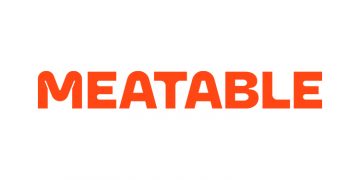Although the term ‘clean label‘ has yet to be clearly defined, it is generally agreed that the phrase refers to foods and drinks that are free from artificial ingredients and are minimally processed. As an increasing number of consumers now expect their products to be clean label as standard, Rudy Wouters, Head of BENEO Technology Center, discusses what the next step is for bakery and snacks manufacturers.
Looking at the labels
Many consumer surveys have reinforced the message that clean label products appeal to all consumer groups; with 1 in 2 consumers (aged 18 – 70 years old) looking at the ingredients list on new products before buying[i] and 1 in 3 consumers around the globe saying that they have increased their research on ingredients over the past year[ii]. The importance of the label cannot be underestimated. Therefore, it is not surprising that manufacturers responded to this increasing label scrutiny, with figures showing 1 in 3 new products launched in 2019 featured a ‘natural’ claim[iii].
With clean label products fast becoming more the ‘norm’ than a rareity these days, how can manufacturers continue to make their bakery and snack products stand out? According to Mintel’s Director of Innovation and Insight, David Jago, a key driver for consumer spending will be feeling good: “Well-being is no longer about simply wanting to look after oneself in broad terms, nor is it about the extremes of a total lifestyle change or commitment to an intense regime. Instead, a holistic, longer-term approach is becoming a key motivator of consumer behaviour, underpinned by convenience, transparency and value.” Consumers want to make ethical as well as healthier choices. So, in addition to understandable ingredients lists, they want their products to promote good health, offer a sustained energy boost, be low in sugar and be created from sustainable sources amongst other things.
Standing out from the crowd
In order to meet these growing consumer demands, food and drink producers are increasingly turning to functional ingredients providers to help them differentiate their products and keep consumers coming back for more. The main issue is that any product reformulation often brings with it a range of functional and technical challenges. However, with 54% of younger consumers (18-24 years old) prepared to pay a premium for healthy foods[iv], there is a significant opportunity for those manufacturers who can work with a functional ingredients provider to blend health, indulgence, sustained energy delivery and clean-label credentials in attractive, innovative ways.
Putting it into practice
Sugar reduction – One of the key focuses for consumers at present is reducing the amount of sugar in their diets to promote health. However, delivering cleaner label, sugar-reduced indulgent bakery products is linked to many technical challenges including maintaining sweetness, appearance, texture, colour and dough handling properties. Although, significant progress in this area is already being made. For example, a team of experts at the BENEO-Technology Center has developed a 30% sugar reduced cookie recipe. This has been achieved by simply replacing 30% of the sugar with BENEO’s clean label Orafti® prebiotic fibre from chicory root. This partial sugar replacement not only reduces the recipe’s overall sugar content but delivers an end product that supports digestive health – which also helps to promote wellbeing – and carries a ‘high in fibre’ claim. Following a sensorial evaluation, tasters also said that these sugar reduced cookies matched their full sugar equivalent in bite and texture and had a pleasant, sweet taste.
Fat replacement – Bakers interested in producing cleaner label products are looking to natural alternatives that can provide the required creamy sensation and maintain a great taste normally achieved through fat. The ideal clean label fat replacer should bring a level of indulgence to fat reduced products through a variety of different technical characteristics, yet be non-GMO to qualify as ‘natural’ for consumers. It should also create a fat-like texture and a creamy mouthfeel, be process stable, have no off-taste, deliver in terms of volume and be low caloric. BENEO has clean label solutions available that support producers to meet these high expectations and rise to the challenge; using either BENEO’s chicory root fibre inulin or native rice starch, or combining both ingredients in optimal quantities.
Incorporating rice starch – BENEO research[v] has shown that 72% of survey respondents regard rice starch as ‘familiar’ and 66% as ‘natural’, making it an ideal ingredient for clean label applications. Unlike other food starches commonly used in the food industry, rice starch is unique in its small starch granule size making it an ideal starch when it comes to creating soft and creamy textures. Thanks to the unique molecular structure of both its amylose and amylopectin polymers, native rice starch has a superior stability compared to native starches from other botanical sources, so it is suited for applications where shelf-life or freeze-thaw stability is of key importance.
The granule sizes of rice starch range from 2 to 8 micron, which is the same order of magnitude as fat droplets. This is why rice starch is often used to create smooth, creamy textures in regular and fat-reduced products such as bakery fillings. With rice being such an accepted and recognisable kitchen cupboard ingredient, a wide range of cleaner label recipe concepts are being worked on at present by the BENEO-Technology Center with food producers.
Gluten-free and clean label – Rice starch can also be used as clean label texturiser in different gluten-free bakery products such as gluten-free bread, cake, biscuits or pizza crust. For example, it helps to optimise the recipe’s crunchiness and reduces the mechanical breakage in biscuits. Another benefit of adding rice starch in soft baked goods is shelf-life improvement as products are less hardening over time.
Also, due to its structural characteristics, rice starch belongs to the group of highly digestible starches, making it a popular ingredient in infant baked products. Being a clean label whitening agent, products such as BENEO´s rice starches are the perfect healthy alternative to colouring additives in bakery icings and fillings.
With such a pull from consumers for more clean label products and ‘well-being’ as a key long-term purchasing behaviour driver, there is a growing, and profitable, opportunity for bakery producers willing to push the boundaries.
[i] Source: BENEO Clean Label Consumer Research 2018, conducted by Haystack in Germany, UK, USA (N=3000 (1000/country)).
[ii] Source: Health Focus International Global Trend Study 2018
[iii] Source: Mintel GNPD 2020
[iv] Source: health and nutrition survey, FMCG Gurus 2019
[v] Source: BENEO Clean Label Consumer research 2018 (UK | Germany | USA, Apr-May 2018, N=3000 (1000/country))




















